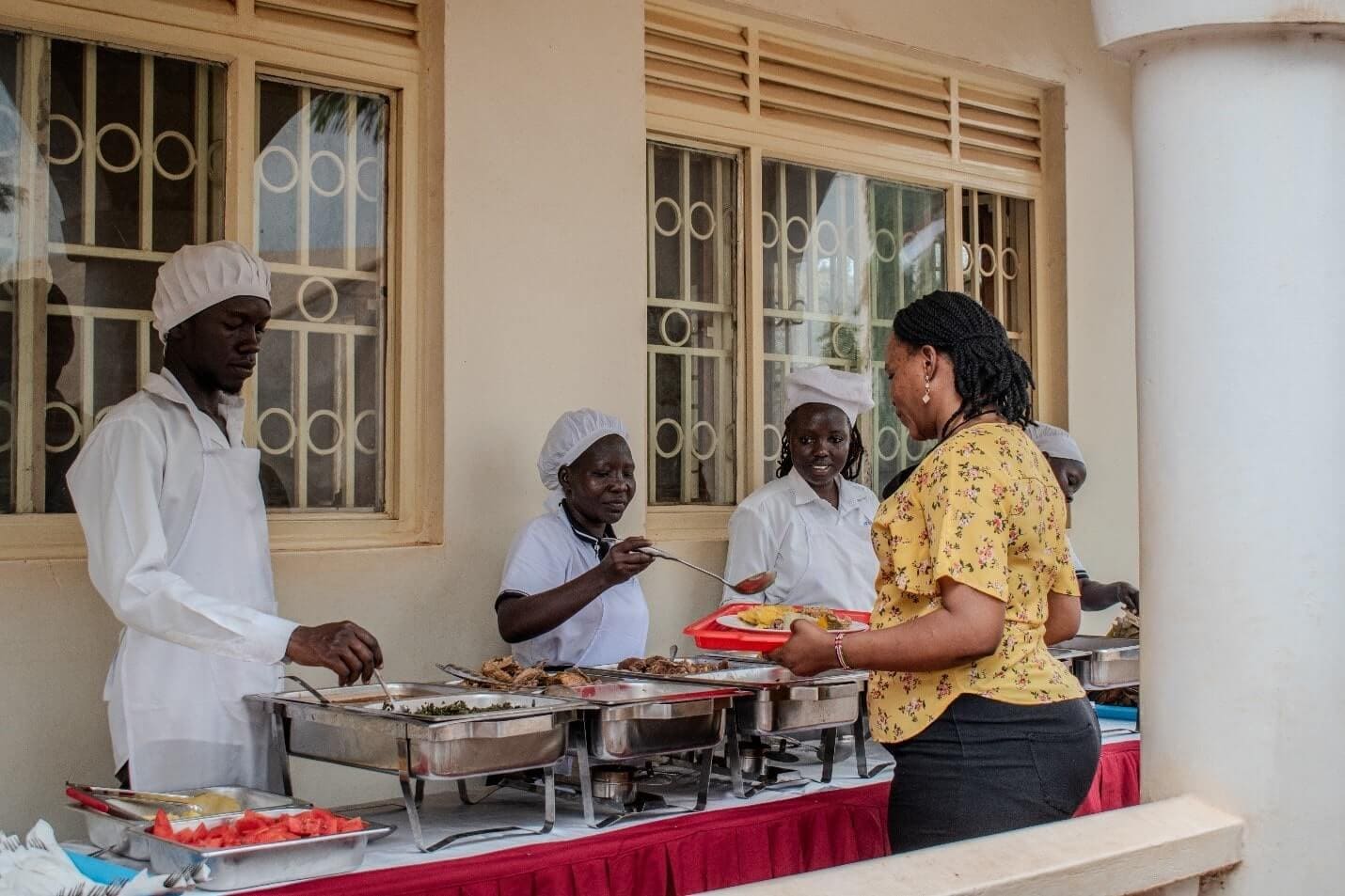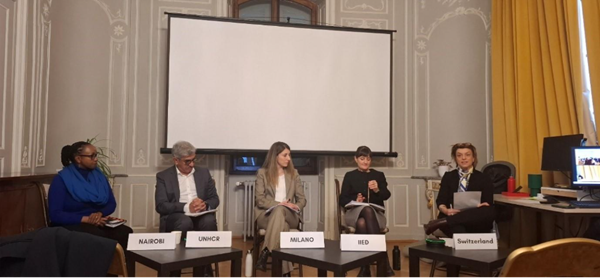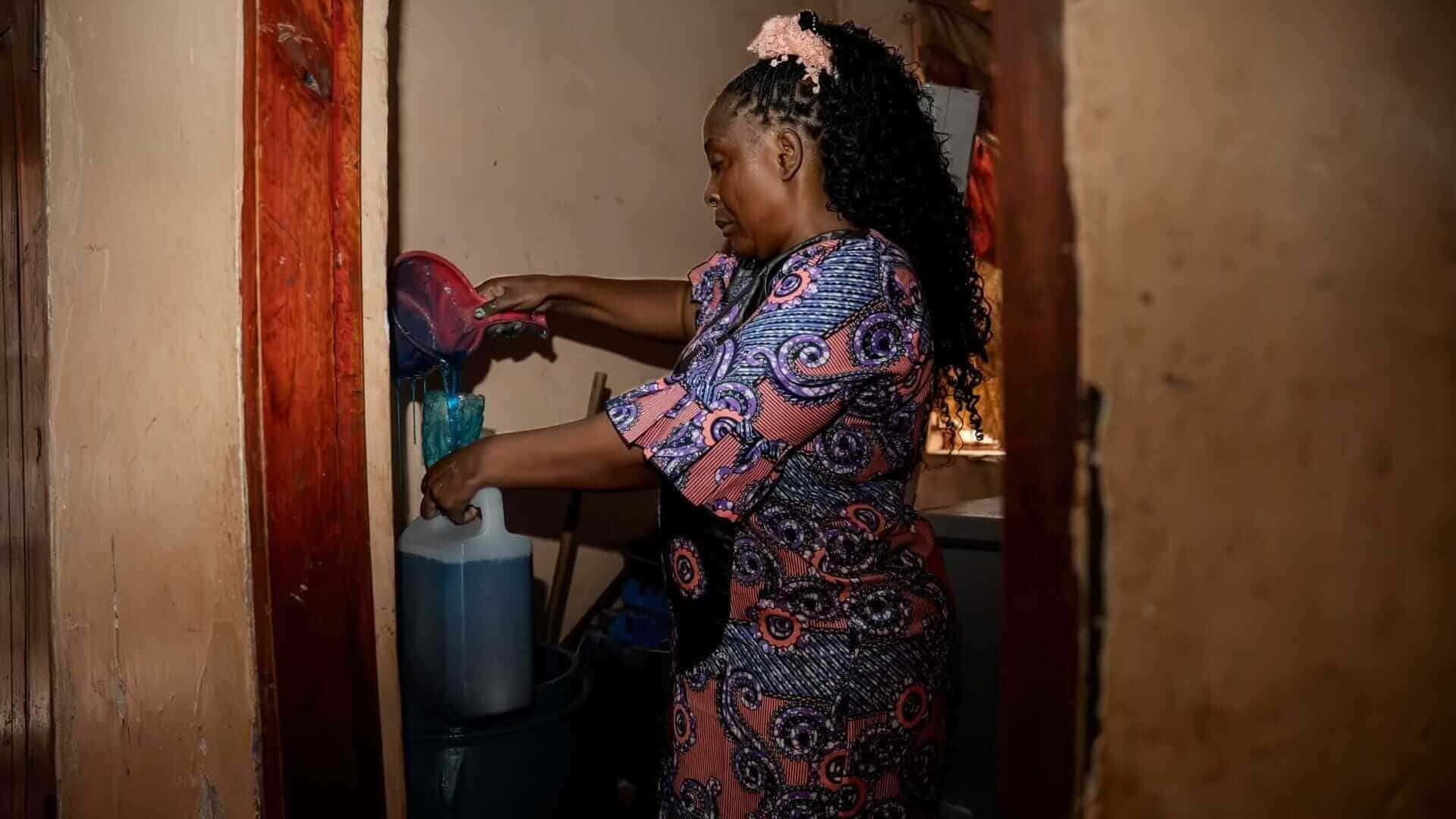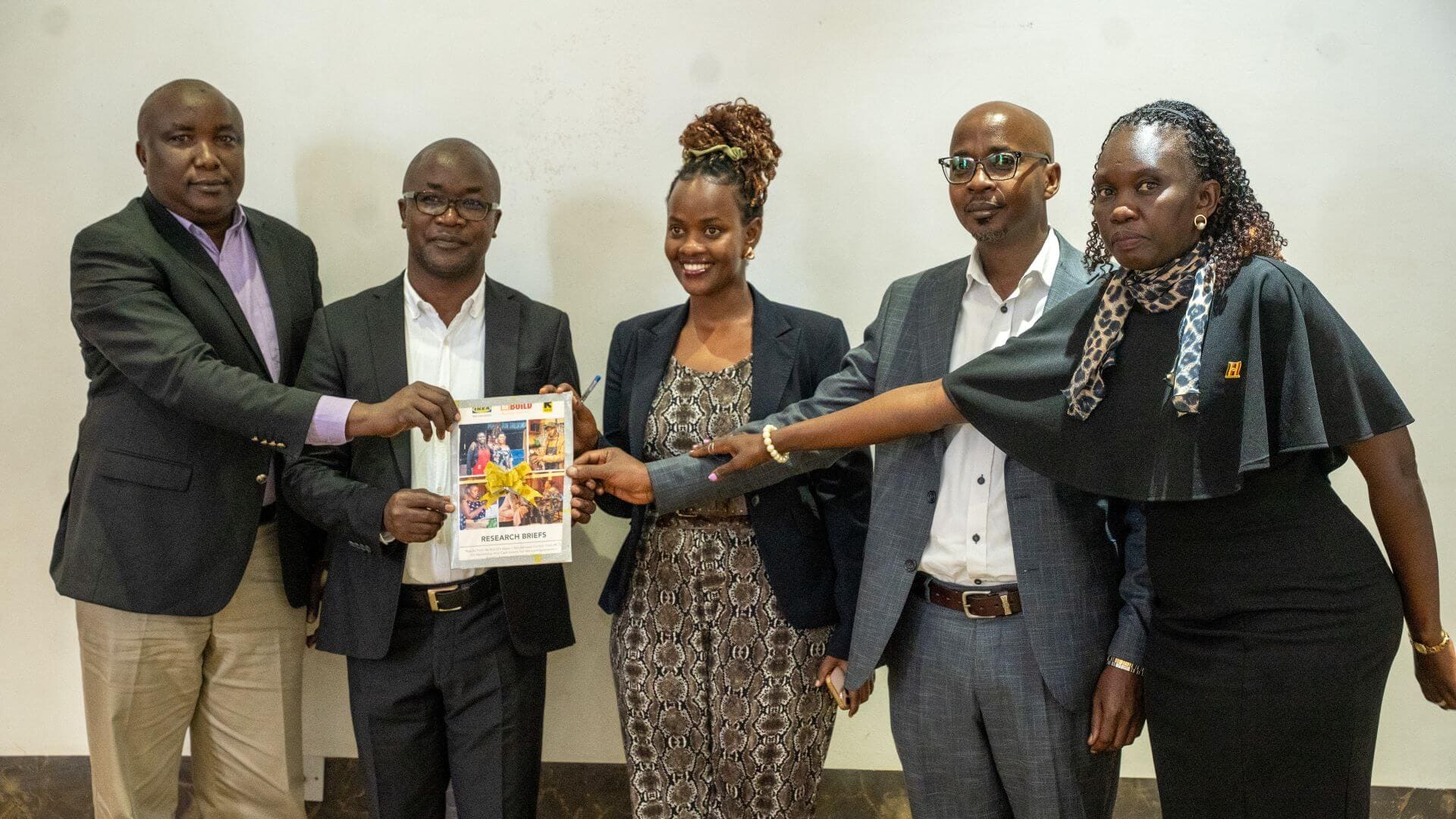Onboarding Refugee Businesses into an Organisation’s Supplier List: A Journey with the Re:BUiLD Program and IRC Supply Chain (Kenya and Uganda)
Onboarding Refugee Businesses into an Organisation’s Supplier List: A Journey with the Re:BUiLD Program and IRC Supply Chain (Kenya and Uganda)
Onboarding Refugee Businesses into an Organisation’s Supplier List: A Journey with the Re:BUiLD Program and IRC Supply Chain (Kenya and Uganda)
By Belinda Muya
August 31, 2023, Kampala, Uganda. Members of Wot Monye (in white aprons) serve meals at the Re:BUiLD livelihood resource center. Wot Monye started as a savings group, it later started catering services for events. The group is one of the service providers for IRC events. (Photo: David Hangi Dadu/IRC)
Imagine a world where every business, regardless of who owns it, has an equal opportunity to thrive. This is the vision that fuels the International Rescue Committee (IRC) and the IKEA Foundation’s Re:BUiLD program. Now in its fourth year, Re:BUiLD is not just advocating for sustainable livelihoods for urban refugees, but it’s making it happen.
In February 2023, the Re:BUiLD program and IRC Supply Chain initiated a ‘Refugee Procurement Taskforce’ to onboard refugee businesses into the IRC vendor lists in Kenya and Uganda. The goal? To encourage inclusive economic growth and build sustainable livelihoods. But the path is not easy. Urban refugee businesses face towering hurdles. Most refugee businesses operate informally due to limited information on processes to formalize their business. Some refugees who might have the relevant information might lack the resources to legally register their businesses. Additionally, most refugees experience challenges in understanding and complying with business and tax regulatory requirements in the host country. This is sometimes coupled with barriers to formal financial services to enable refugees to borrow capital to grow their businesses.
The Re:BUiLD program, however, is not one to back down. Already, it’s influencing policy changes and practices, fostering the participation of urban refugees in the economy.
So, why not collaborate with refugee businesses?
Enter the taskforce, a dedicated team formed by the Re:BUiLD program and IRC Supply Chain. Their mission? To identify refugee businesses, assess legal frameworks, streamline refugee vendor onboarding processes, and share capacity to meet IRC’s supplier requirements.
In their quest to identify and engage refugee businesses, the task force identified an information gap. Most organizations and refugees were in the dark about how to legally engage in business. But every problem has a solution; the team organized information-sharing meetings where refugee business owners were provided with detailed guidance on identifying and bidding for supply opportunities and the legal requirements associated with such processes. Additionally, qualifying businesses were paired with larger, experienced entities for mentorship.
The task force used the Refugee Investment Network (RIN) classification to identify the level of refugee-related businesses to support. The task force settled on refugee-owned (R1), refugee-led (R2), and refugee-supporting (R3) level businesses. The task force also focused on specific procurement categories namely, office supplies, branding and merchandise materials, catering services, venue and events services, provision of ICT equipment, and vehicle tires and maintenance. Through referrals from peer International Non-Governmental Organisations (INGOs), they identified a total of 17 refugee businesses.
Despite the challenges, such as most businesses lacking the minimum mandatory documents to operate, and operating mostly informally with limited investment, the task force successfully onboarded six refugee businesses.
This journey led the task force to recommend developing specific supplier requirements for refugee businesses and collaborating with financial service providers to ensure refugee businesses have access to finance and can acquire registration permits. Additionally, they called for collaboration among refugee businesses and training on compliance and quality development. IRC celebrates the achievements realized so far and looks forward to expanding efforts towards procurements from refugee-related businesses.


